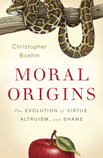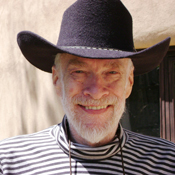Mullane Literary Associates
Moral Origins by Christopher Boehm


Praise for Christopher Boehm's Moral Origins
“A tour de force of a sort rarely seen in any science. Boehm seeks nothing less than to discover in the darkness of prehistory how and why humans first developed a moral conscience—a self-regulating sense of right and wrong. How did we come, many thousands of years ago, to acquire internalized conceptions of morality and virtue to such a degree that we would not only punish wrongdoers in our midst but even take pleasure in altruism?... a remarkable leap of the imagination—full of illuminating and delightful detail—about the deep history of our uniquely ethical species.”
Donald Black, author of Moral Time
“Few scientists have thought longer and harder about the origins of morality than Christopher Boehm, who brings to the issue a wealth of experience studying both humans and other animals. His thesis that our species has taken moral evolution into its own hands is new and refreshing. It overcomes conventional wisdom, which places emphasis solely on moral reasoning, as if the revolution in our understanding of emotions in human evolution had never happened.”
Frans de Waal, author of The Age of Empathy
“Astronomers have the Hubble telescope to look back through time, and social scientists have Chris Boehm. Boehm’s monumental accomplishment is to give us the most careful and compelling portrait ever created of how our ancestors lived, from three hundred thousand generations ago to five hundred generations ago. Boehm’s work is vital for understanding why we are so tribal, punitive, gossipy, religious, and cooperative today.”
Jonathan Haidt, author of The Righteous Mind
“A must-read... beautifully written... certainly the most informed and best work written by an anthropologist on these issues.”
Jonathan Turner, author of The Sociology of Emotions
“Boehm does a remarkable job of extending previous work and incorporating a historical approach.... to offer a new explanation for moral behavior.... His thesis encompasses the egalitarian nature of most hunter-gatherer groups, their need to share large, and the human penchant for gossiping about the reputation of others.... Boehm himself notes that this may not be the last word, but his ideas are provocative, thoughtful, and worth considering.”
Publishers Weekly, starred review
“Christopher Boehm brilliantly ties fundamental aspects of human cooperation such as altruism, free-riding, and bullying to both primitive and advanced societies....a must for all who are interested in how human morality evolved and functions.”
Ernst Fehr, economist, University of Zurich
About the Author
Christopher Boehm is Director of the Jane Goodall Research Center and Professor of Anthropology and Biological Sciences at the University of Southern California in Los Angeles. His work focuses on the social behavior of both human tribal societies and the African great apes, especially the evolution of morality and altruistic behavior. Boehm’s research has been featured in New Scientist, the New York Times, The Times of London, Natural History, and in films for National Geographic, Wild Kingdom, and the Discovery Channel. He is the author of many scientific articles and several previous books, including Hierarchy in the Forest, and has received awards from The John Templeton Foundation, the John Simon Guggenheim Memorial Foundation, the National Endowment for the Humanities, the American Anthropological Association, and other numerous organizations. He lives in Los Angeles.